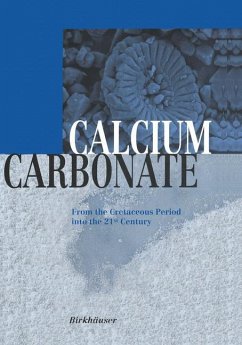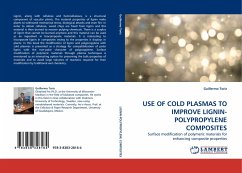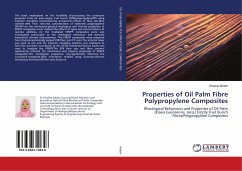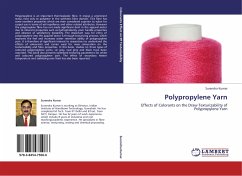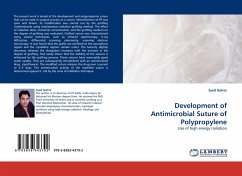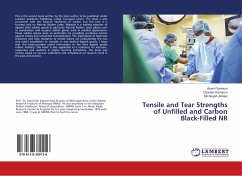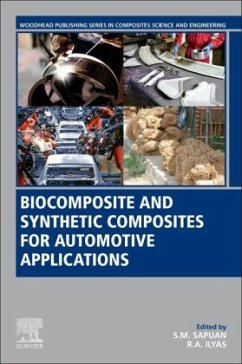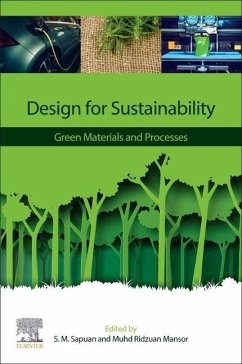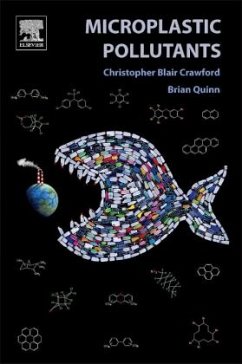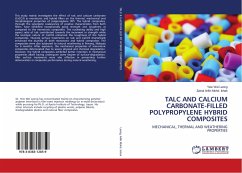
TALC AND CALCIUM CARBONATE-FILLED POLYPROPYLENE HYBRID COMPOSITES
MECHANICAL, THERMAL AND WEATHERING PROPERTIES
Versandkostenfrei!
Versandfertig in 6-10 Tagen
45,99 €
inkl. MwSt.

PAYBACK Punkte
23 °P sammeln!
This study mainly investigates the effect of talc and calcium carbonate (CaCO3) as monotonic and hybrid fillers on the thermal, mechanical and morphological properties of polypropylene (PP). The hybrid composites, through the synergistic coalescence of positive characteristics from both fillers, have exhibited exceptionally good strength and toughness as compared to the monotonic composites. The nucleating ability and high aspect ratio of talc contributed towards the increment in strength while the isotropic nature of CaCO3 enhanced the toughness of the hybrid composites. Titanate surface trea...
This study mainly investigates the effect of talc and calcium carbonate (CaCO3) as monotonic and hybrid fillers on the thermal, mechanical and morphological properties of polypropylene (PP). The hybrid composites, through the synergistic coalescence of positive characteristics from both fillers, have exhibited exceptionally good strength and toughness as compared to the monotonic composites. The nucleating ability and high aspect ratio of talc contributed towards the increment in strength while the isotropic nature of CaCO3 enhanced the toughness of the hybrid composites. Titanate surface treatments on talc and CaCO3 dramatically enhanced the ductility of both monotonic and hybrid composites. The composites were also subjected to natural weathering in Penang, Malaysia for 6 months. After exposure, the mechanical properties of monotonic composites deteriorated due to severe physical and chemical degradation. However, the hybrid composites exhibited better retention in mechanical properties albeit having undergone some degree of surface-degradation. Filler surface treatments were also effective in preventing further deterioration in composite performance during natural weathering.



